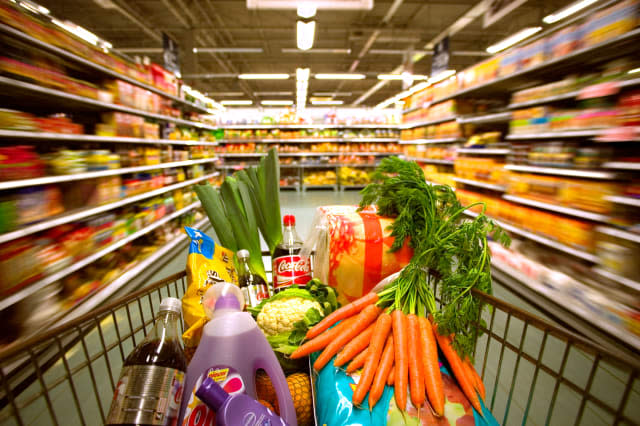2015: a year of hell for the supermarkets

2015 will go down in retail history as one of the worst in living memory for the big four supermarkets. They may have thought that 2014 was bad enough (especially for scandal-hit Tesco), but this year they have had collapsing profits, falling sales, market share disasters, job losses and store closures. It comes to something when the best that the Chief Executives have been able to boast about is that things are getting worse at a slightly slower pace now.
Tesco has arguably had one of the worst 2015s
In February Dave Lewis, the company's new boss, claimed that the previous 12 months were 'year zero' - marking the time when things couldn't get worse, and were set to turn around. However, the brand was hardly out of the woods at that stage.
In April the company recorded the biggest loss ever on the UK high street - the firm was £6.4 billion in the red as a result of write downs on the value of its property portfolio and stock. That month the company also announced the loss of 5,000 head office jobs, and 2,500 shop floor jobs - with the closure of 43 stores in the UK.
In October, the bad news kept coming. The retail giant reported that its operating profits had more than halved in the previous six months. The firm was still making £354 million - but that's compared to £779 million in the same period a year earlier. Profits in the UK actually fell even further - 70%.
By November Tesco's market share was down to 27.9% - its lowest point in ten years.
%VIRTUAL-ArticleSidebar-supermarkets%
Asda was the worst performing
In October, Asda announced another 4% drop in sales: the fifth quarter in a row that sales had fallen. Back in July it had announced a drop of 4.7% - the worst in the company's history - which the Chief Executive claimed was the company's 'nadir'.
As a result of declining sales, the November figures showed that Asda's market share had dropped below Sainsbury's . It is now just the third biggest supermarket in the country - with 16.4% of the market.
It's perhaps unsurprising, because Asda has been seen as the cheapest of the mainstream supermarkets, leaving it particularly vulnerable to shoppers abandoning the brand in favour of cheaper discounters.
The company is doing its best to fight back with aggressive price cuts, but Chief Executive Andy Clarke admitted: "Despite signs of a real and sustainable economic recovery, 2015 is setting itself up to be the most challenging year yet for traditional supermarkets."
Morrisons drops
Things have been so bad for Morrisons in 2015 that in December it dropped out of the FTSE 100 altogether. The company had lost 22% of its value since January and was at levels last seen in 2000. The management has committed to competing with the discounters on price, and the major price cuts hit sales hard. Like-for-like sales and total sales have fallen every quarter in 2015 - and sales were down another 26% in November.
It has also struggled to stick with the strategy. It recently faced an embarrassing climbdown in its efforts to match the discounters through its Match and More scheme, and reduced the card to little more than a loyalty programme.
As a result of its woes, Morrisons was forced to sell off M local - its convenience brand - to private investors for just £25 million (they were all making a loss at the time). It has also closed 21 stores, and its market share has fallen from 11.1% to 10.8%.
Sainsbury's also struggled
In November Sainsbury's reported it's worst 'first half' results for five years - down 20% from a year earlier. Sales at established stores fell 1.6%, and profit before tax and one-offs fell 18% to £308 million. Again the supermarket said it was expecting profits to continue to struggle as more prices were cut.
It did, however, manage to pull off a feat that none of the rest of the big four achieve - it increased its market share in the year to November - from 16.4% to 16.6%, which investors are hoping is a sign that the worst of the storm has passed.
The upside
The silver lining to this particularly cloudy year has been that some shoppers have found themselves better off. The grocery price war that has seen profits take such a hit has meant each household saved an average of £58 on their shopping this year. The supermarkets are upping their game to keep customers, so we have had an incredible number of price cuts, and more promotions to get us through the doors.
There are some shoppers who are feeling the pain. There are those who will miss the broad ranges that catered for minority needs like vegetarians and those with gluten allergies. There are those who have seen their local store close, and many thousands of people have lost their jobs.
The longer things continue, the more widespread the pain may become, with yet more stores forced to close, and entire chains starting to struggle. It means that even those who have benefited financially from the supermarket's year of hell may be hoping that 2016 is a little easier on the retail giants.














